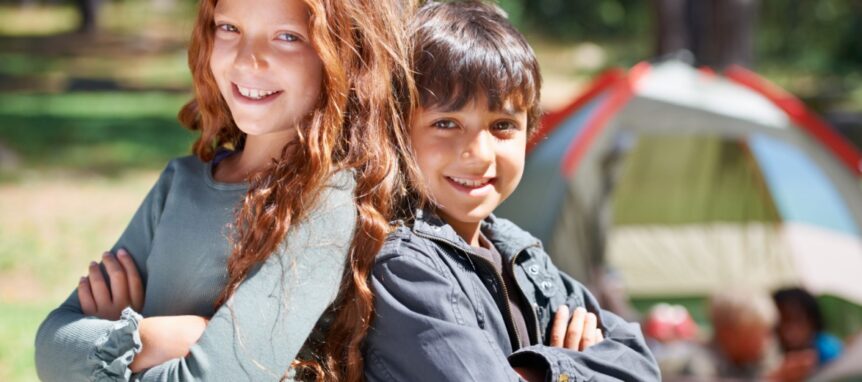Modern childhood is increasingly spent indoors. Between school hours, homework, and recreational screen time, many children are missing out on one of the most essential aspects of healthy development—time in nature. This growing disconnection from the natural world has led to what experts call Nature Deficit Disorder, a term popularized by author Richard Louv in his book Last Child in the Woods. While not a clinical diagnosis, Nature Deficit Disorder refers to the physical, emotional, and behavioral problems that can arise when children are deprived of regular exposure to nature.
Fortunately, camp can provide a powerful solution to this growing concern. By offering immersive outdoor experiences, camps help reconnect children with the natural world in meaningful, impactful ways. Let’s explore how camps play a crucial role in reversing the effects of Nature Deficit Disorder and nurturing healthier, happier kids.
Understanding Nature Deficit Disorder
Children today spend less time outdoors than any previous generation. This shift has been linked to a number of issues, including increased anxiety, reduced attention span, lack of physical activity, and poor social skills. When kids are disconnected from nature, they miss out on essential opportunities for exploration, free play, and sensory engagement.
Nature Deficit Disorder highlights the importance of unstructured, outdoor play in child development. Whether it’s climbing trees, digging in the dirt, or observing wildlife, these experiences stimulate curiosity and build a foundation for emotional and physical wellness.
Camps Reintroduce Children to the Outdoors
Summer camps are uniquely positioned to combat Nature Deficit Disorder by offering extended time in nature away from screens and distractions. Campers are encouraged to explore forests, lakes, and trails—places where they can observe animals, learn about ecosystems, and engage in hands-on learning.
From nature hikes to beach cleanups, canoeing to campfire storytelling, every moment outdoors helps deepen a child’s connection to the environment. These experiences are not only fun, but they also teach children to appreciate and care for the natural world.
Building Curiosity Through Hands-On Learning
One of the best ways to encourage outdoor learning is through hands-on exploration. Camps often provide structured activities like nature scavenger hunts, environmental science projects, and wildlife observation that fuel a child’s curiosity. These activities introduce scientific concepts in a tangible, exciting way.
Children learn to ask questions, form hypotheses, and make observations—all while fully engaged in nature. This form of learning feels less like school and more like play, but the educational benefits are significant.
Improving Physical and Emotional Health
Spending time outdoors offers measurable health benefits. Sunlight provides much-needed vitamin D, fresh air boosts respiratory health, and physical activity improves strength and coordination. More importantly, time in nature helps reduce stress, anxiety, and symptoms of attention disorders.
Camps that prioritize outdoor activity help children reset. The natural rhythm of the day—rising with the sun, playing outside, and falling asleep to the sounds of crickets—can restore balance and improve emotional regulation. Camp provides a break from the overstimulation of modern life and offers a calming, grounding environment.
Fostering Environmental Stewardship
Children who spend time in nature are more likely to grow into adults who care about the environment. Camps often incorporate lessons on sustainability, conservation, and responsible outdoor behavior, which instill a sense of environmental responsibility. By observing the beauty and complexity of the natural world firsthand, campers learn that they have a role in protecting it.
Whether it’s learning to Leave No Trace during a hike or participating in a shoreline cleanup, these lessons build long-term values that extend far beyond the camp experience.
Encouraging Social Development Through Shared Outdoor Experiences
Nature-based play and exploration also build social skills. Children learn to cooperate during group activities, communicate during team challenges, and support one another while trying something new—like paddling a canoe or starting a fire. These shared experiences foster empathy, cooperation, and a sense of community.
When nature becomes the backdrop for friendship, children not only form stronger peer relationships but also create lasting memories that tie them emotionally to the outdoors.
The Lasting Benefits of Outdoor Immersion
The benefits of spending time in nature aren’t confined to the camp setting. Studies show that children who spend more time outdoors perform better in school, are more creative problem-solvers, and have stronger emotional resilience. Camps provide the spark—helping children fall in love with nature and guiding them toward healthier, more balanced lifestyles.
At Camp Live Oak, nature is at the heart of every experience. Our programs are designed to reconnect children with the outdoors, offering a safe and supportive environment where they can explore, learn, and thrive. To learn more about how we help combat Nature Deficit Disorder and foster lifelong appreciation for the natural world, contact us today.

